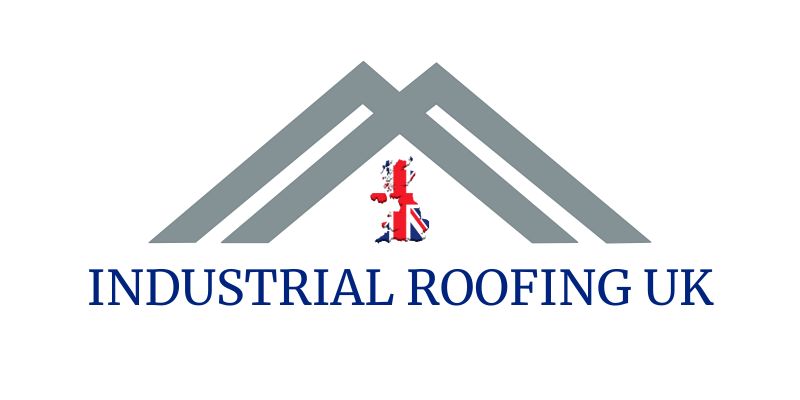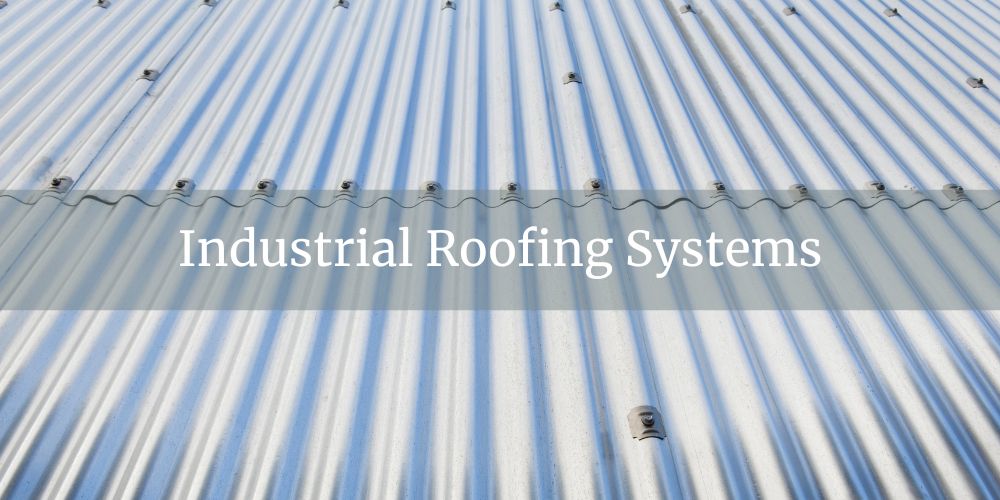Industrial roofing systems refer to the specialised roofing structures designed for industrial buildings. These systems are crafted to endure harsh environmental conditions, heavy loads, and exposure to chemicals. They often utilise materials and technologies that enhance resilience, energy efficiency, and safety. Proper installation and upkeep of these systems are crucial for the long-term protection and performance of industrial facilities, ensuring they remain secure and functional.
Industrial Roofing UK provide expert contractor services across a wide range of industrial roofing systems, supporting businesses throughout the UK with durable, high-performance solutions. We specialise in the installation, repair, and refurbishment of systems including metal roofing, built-up felt, single-ply membranes (TPO, PVC, EPDM), composite panels, and liquid-applied coatings. Each system is tailored to meet the specific structural, thermal, and environmental demands of industrial facilities such as factories, warehouses, and distribution centres. With nationwide coverage and a commitment to safety and compliance, we deliver reliable roofing systems built for long-term performance.
What Are Industrial Roofing Systems?
Industrial roofing systems are specialised solutions designed for industrial buildings such as factories, warehouses, and manufacturing plants. These systems are built to handle extreme conditions, including heavy machinery vibrations, chemical exposure, and substantial foot traffic. Common materials used in industrial roofing include metal panels, single-ply membranes, and bitumen, chosen for their strength and resistance to environmental stressors. According to the National Federation of Roofing Contractors (NFRC), these roofing systems must be sturdy enough to withstand severe weather conditions and frequent temperature changes.
Moreover, industrial roofing systems often feature additional components such as insulation and ventilation to maintain energy efficiency and optimal indoor environments. Regular maintenance and timely repairs are crucial to extend the lifespan of these roofing systems, with studies indicating well-maintained roofs can last up to 50% longer. The Building Research Establishment (BRE) highlights the importance of using high-quality materials and skilled professionals for installation and upkeep to prevent issues like leaks and corrosion. Overall, industrial roofing systems play a vital role in ensuring the safety, functionality, and efficiency of industrial facilities, making them an essential component of building management and infrastructure.
Have a question about an upcoming project?
What Are The Different Types Of Industrial Roofing System?
The different types of industrial roofing systems include metal roofing, TPO, EPDM and built-up roofing. Each type is suited to specific needs and conditions, offering unique benefits in terms of durability, weather resistance, and energy efficiency. Understanding these options helps in selecting the best system for your industrial building.
- Metal Roofing Systems
- TPO (Thermoplastic Olefin) Roofing Systems
- EPDM (Ethylene Propylene Diene Monomer) Roofing Systems
- Built-Up Roofing (BUR) Systems
- Other Systems (PVC, Modified Bitumen)
1. Metal Roofing Systems
Metal roofing systems, often made from steel or aluminium, are known for their durability and long lifespan. These systems are highly resistant to fire, wind, and severe weather conditions, making them a reliable choice for industrial buildings. Approximately 50% of industrial roofs in the UK use metal roofing systems due to their strength and minimal upkeep needs. Their long-term reliability and resilience make them a preferred option in industrial roofing.
2. TPO (Thermoplastic Olefin) Roofing Systems
TPO roofing systems are single-ply membranes made from thermoplastic polyolefin. They are known for their heat-welded seams and white reflective surface, which contribute to their energy efficiency. About 20% of industrial roofs in the UK use TPO systems because of their energy-saving properties and UV resistance. These features make TPO an excellent choice for industrial buildings aiming to reduce energy costs and improve roof durability.
3. EPDM (Ethylene Propylene Diene Monomer) Roofing Systems
EPDM roofing systems are single-ply membranes made from synthetic rubber, widely used for their flexibility and resistance to harsh weather conditions. Approximately 15% of industrial roofs in the UK use EPDM systems due to their ease of installation and cost-effectiveness. EPDM's adaptability and affordability make it a popular choice for industrial roofing solutions.
4. Built-Up Roofing (BUR) Systems
Built-up roofing (BUR) systems are composed of multiple layers of bitumen and reinforcing fabrics, creating a finished membrane. These systems provide excellent protection against water and weather damage, ensuring the longevity of the roof. Roughly 10% of industrial roofs in the UK utilise BUR systems, chosen for their robust protective qualities. Their layered construction offers reliable and long-lasting performance in industrial settings.
5. Other Systems (PVC, Modified Bitumen)
Other systems like PVC and modified bitumen are also used in industrial roofing but to a lesser extent. PVC roofing systems are known for their chemical resistance and heat-welded seams, while modified bitumen combines polymer-modified bitumen to enhance elasticity and strength. These other systems account for the remaining 5% of industrial roofs in the UK. Despite their lower usage, they offer unique benefits for specific industrial applications.
| Roofing System | Estimated Usage |
|---|---|
| Metal Roofing Systems | Approx. 50% |
| TPO (Thermoplastic Olefin) Roofing Systems | Approx. 20% |
| EPDM (Ethylene Propylene Diene Monomer) Roofing Systems | Approx. 15% |
| Built-Up Roofing (BUR) Systems | Approx. 10% |
| Other Systems (PVC, Modified Bitumen) | Approx. 5% |
What Are The Different Types Of Metal Roofing Systems?
The different types of metal roofing systems include standing seam metal roofs, corrugated metal roofing, and metal tile roofing. Metal roofing systems are the most commonly used for industrial buildings in the UK due to their durability, cost-effectiveness, and ease of installation. Below we look at the types of metal roofing most often used for industrial buildings.
- Standing Seam Metal Roofs
- Corrugated Metal Roofing
- Metal Tile Roofing
Standing Seam Metal Roofs
Standing seam metal roofs consist of vertical panels with interlocking seams which rise above the flat surface. This design offers excellent weather resistance and longevity. Approximately 60% of industrial metal roofs in the UK use standing seam systems due to their extended lifespan and minimal upkeep needs. Their durable construction makes them ideal for withstanding severe weather conditions.
Corrugated Metal Roofing
Corrugated metal roofing features wavy metal sheets providing additional strength and flexibility. It is often used for industrial buildings requiring sturdy and economical roofing solutions. About 30% of industrial metal roofs in the UK are corrugated, favoured for their affordability and straightforward installation. Their simple design allows for quick and efficient fitting, reducing labour expenses.
Metal Tile Roofing
Metal tile roofing mimics the appearance of traditional tiles while offering the benefits of metal, such as light weight and durability. These systems are less common in industrial settings but are used for specific aesthetic and functional purposes. Less than 10% of industrial metal roofs in the UK utilise metal tile systems, chosen for their visual appeal and resilience. Their versatile design allows for a variety of styles to complement building exteriors.
What Are The Main Differences Between Industrial and Commercial Roofing Systems?
The main differences between industrial and commercial roofing systems lie in their design, materials, and functional requirements. Industrial roofing systems are typically designed for large-scale buildings such as factories, warehouses, and plants, requiring robust materials and structures to endure harsh environmental conditions and heavy machinery. In contrast, commercial systems are used for smaller buildings like offices, retail stores, and restaurants, focusing more on aesthetic appeal and cost-efficiency, often incorporating flat roofs.
- Design and Structure
- Materials Used
- Functional Requirements
- Maintenance and Lifespan
1. Design and Structure
Industrial roofing systems are often more complex, designed to cover vast areas and accommodate heavy equipment and machinery. These roofs must support additional structures, such as vents, smokestacks, and large HVAC systems. A commercial roof is often flat, less complex and cover smaller areas with less need for structural reinforcements.
2. Materials Used
The materials used for industrial roofs are chosen for their durability and ability to withstand extreme conditions. Common materials include metal, TPO, EPDM, and built-up roofing systems. Systems for commercial buildings may use similar roofing materials but often incorporate other options like single-ply membranes and cold applied liquid due to their cost-effectiveness and ease of installation, particularly on flat roofs.
3. Functional Requirements
Industrial roofs must meet stringent requirements for durability, weather resistance, and safety, as they protect critical infrastructure and valuable machinery. They often include additional features like fire resistance and chemical resistance. Commercial roofs, while still needing to be durable, place more emphasis on energy efficiency, insulation, and aesthetic integration with the building’s design, especially on flat roofs.
4. Maintenance and Lifespan
Industrial roofing systems usually require more frequent maintenance and inspections due to the harsh environments they endure. Their lifespan can be longer if maintained properly, often exceeding 30 years. Commercial roofs, also require regular maintenance, but generally have fewer demanding needs and can last around 20-30 years depending on the materials used and maintenance practices followed.


